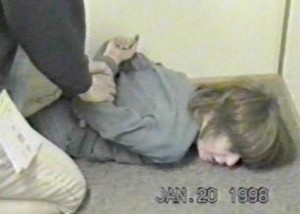Who is the biggest barrier when it comes to getting the best life for you child, family member or client with a disability? Would you say it is you or someone else? The fact is that you are the biggest barrier.
As a parent, guardian, family or caregiver, what is your role?
Your role basically is to be there for advice, support and fight for what your child, client or family member needs to get them towards a better future.
What are you doing right and wrong?
Right – Most of you in this room are fighting to get the best thing for your child, client or family member. You are there for advice and support. You will fight your butt off to try and make sure nothing really bad happens to them.
Wrong – We care so much about our child, client or family member that we hold on with such a tight grip because we don’t want them getting hurt or worse. We may think that we know what is best for someone without eve n discussing it with them, that it is the way it is. We don’t discuss with them what they want and what they think is best when it comes to their life. One ex ample is that you may think college is the best for them but they may want something else or think that college is not the best for them. The way it usually turns out is that it goes your way, you don’t even tale the time to discuss with them because you think that you know all the answers. The fact is that you are wrong.
We blame things on the school government and community when things go wrong but in most cases, you are the problem because you are holding on with such a tight grip.
How can you change to start getting your child, client or family member on a path towards success?
Start by loosening the grip. You may be so s cared that they will get hurt but you need to let them get out there and experience things, have failures and learn the kind of life they want. We /learn by getting out there, failing and going through things! Be there for support and advice but don’t try to run their life.
Let me give you some examples: I have been through many things as you heard in the beginning. I have failed many times and still fail at things but it has got me where I am today. My parents and family has been here to give me advice and support me in adventures I want to take in life. My parents did not put limits or boundaries on me. They supported me when I decided to go to college, move out on my own, start my own business, etc. They are also there for advice when I need them.
Be there but no matter how hard it gets, don’t give up! Squeak those wheels and let’s do this!


